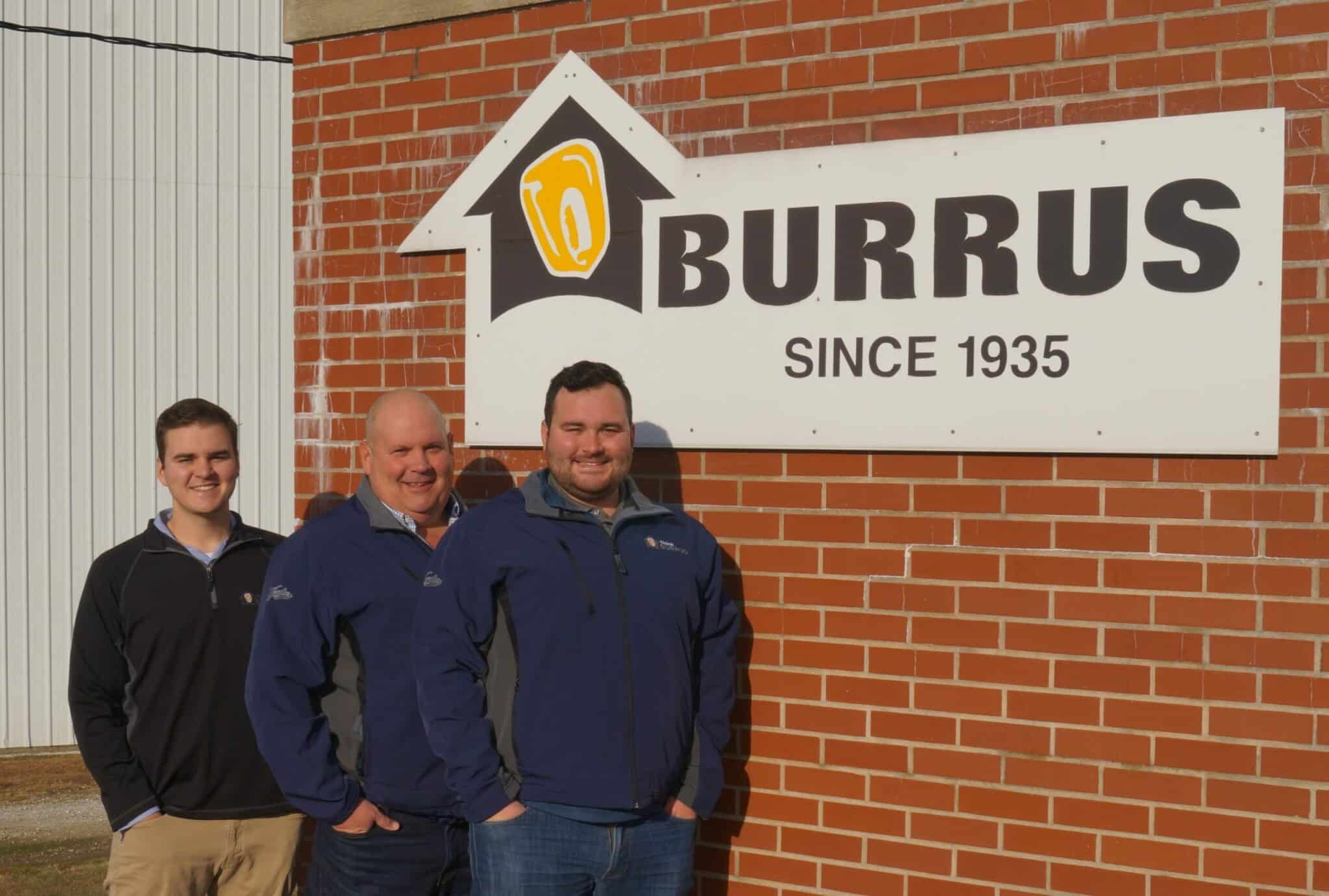It’s tough bringing new perspectives into a business. Doing it in a family business can be even tougher.
For independent companies, there’s one common theme among most: it’s a family business. One thing that’s less frequently mentioned? Sometimes, it can be a challenge to manage family dynamics!
But, for Chris Cornelius — when she describes working with her family, she’d use the term blessed.
“We are firm believers when you invite your children back to the business — you must, without hesitation, offer them a competitive wage with an opportunity to make more,” Cornelius, executive assistant at Cornelius Seed and president of the Independent Professional Seed Association (IPSA), says. “As a young adult with a college degree, why would you go back to a family business and make less than your peers? In agriculture you need to encourage things to grow, including the next
generation.”
That means, if you’re going to bring your children into the business, you need to make them part of the business, she says. Although it might be challenging, the next generation needs to have an opportunity to be owners to get skin in the game.
“The next generation brings different skills, and it helps you take your business to the next level,” Cornelius says, adding that it was the same when she and her husband, Chuck, joined Cornelius Seed. “Everyone feeds off each other’s strength, and if I have a weakness, that’s someone else’s strength. Each new generation takes the business to the next level.”
Having Skin in the Game
Most independent companies have faced a similar story: while parents are running the family business, bringing in the next generation of leadership into the fold is important. While you might not start out in a “leadership” role right off the bat, bringing children and spouses into the mix means bringing in fresh, new ideas to keep the business innovative.
For most parents owning businesses currently, that level of grace and understanding came as an example from their own parents as they entered into the family business.
Though Tim Greene’s been involved with Burrus Seed since before he and his wife, Lori Burrus Greene, were married, after joining the family, he was able to see how much room his father-in-law, Tom was given in terms of leadership, even as his own father was still engaged in the business.

“Her grandfather Martin was still involved at the business at the time. I remember the presence that he still had in the business and the wisdom he showed at the time,” Greene, now president of Burrus Seed, says. “It was interesting seeing the dynamic between he and his sons, Tom and Todd — the third generation — in the business. I learned not only the past history, but why and how some of the decisions were made.”
One of the biggest takeaways he saw was how the business was set up. Martin had, when Tom and Todd were younger, set up the business in a particular way: instead of forcing both of his sons on the same path, he identified the need to split their roles to give them their own areas of responsibility.
“Todd focused on production and Tom focused on sales,” Greene says. “They were a team, but each led their own arm of the business and supported each other. It was a really cool dynamic — they were honest and straightforward with their thoughts and ideas, but they respected each other as well.”
At Cornelius Seed, they have set up their next generation in a similar fashion, modeled after what the generations of Corneliuses had done before.
One thing she’s noticed? The next generation working with Cornelius Seed doesn’t ask ‘Why?’ Instead, they ask, ‘Why not?’
“We have eager, very capable young men and women who want to be in the business and who we want to be happy,” she added. “Allow them to make decisions. Let them have successes and let them experience trials.”
Even though it’s not always easy, especially due to differences in management and communication styles, differences in addressing deadlines and differences in day-to-day interaction, Cornelius says that they’re all better for it.
“There is a steep learning curve for both generations when the young guns join the family business,” she says. “Keep your eye on the prize. Work through the dust-ups and count on the fact that being a family will pull you through and the celebrations will be so sweet.
“In our business of being a family, faith and work ethic are so very important,” she adds. “Attending church and prayer is important. Long days, late nights, supper in the tractor, kissing the kids goodnight after they are asleep… We are passionate about what we do, so working ‘extra’ is part of the life we chose. A strong work ethic is a difference maker in a family business.”
Cornelius says that not only do they believe it’s important to turn over responsibilities to the next generation, but to share that control and ownership with them. That way, if she and her husband were to retire tomorrow, they’d know the company is in good hands.
From there, it’s important to ensure the next generation is welcomed, and they’re given points to share ideas without worry of repercussions.
“Tom and Todd were very welcoming of the next generation and to let me learn,” Greene says. “While I was on the sales side, I wasn’t in the office all the time in my early career. When I did come back, I could see that Martin didn’t hesitate to let the decision-making move on. He was there for guidance, and let Tom and Todd take over. That’s what kind of helped develop me over the career as well — they were used to that, because it was the path their father had chosen.
“The fourth generation got to join in as active partners, and that was a very important step in our development. We got the opportunity to participate in helping guide the business — it’s important to let the next generation call a lot of the shots too,” Greene says.
Bringing Business Home? Check Your Attitude
Besides bringing the next generation into the business, another part of maintaining the right family dynamics within a family business is examining how you bring business home. That’s not to say that you leave business at the office, but Cornelius says it helps to approach the dynamics in the right way.

“We’re fortunate that our grandkids pop in and out of the office all the time,” she says. “They’re watching us. When you’re sitting around the table after a day of work — don’t talk about how hard it is. Be real, but don’t dwell on the negatives. If you start talking about how hard the business is, they may never have any desire to be part of it. You need to work at staying
positive.”
Greene agrees — though there are frustrations every day like in any business, it’s important to be able to talk about the business.
“Lori grew up knowing and understanding the activities her father did in the business day-to-day, and even though you don’t like to, sometimes you do bring work home,” Greene says. “But, because we’ve all experienced it, we get to talk about it. There are a lot of times that dinner conversation is around what’s going on in the business and how things have changed over the course of our 30 years. We try to not make it about our frustrations, instead, you frame it as what’s going on. And sometimes, you leave things at work.”
Another solution the Cornelius family has found to be helpful? Finding a neutral space to be the “work-free” zone.
For their family, as big Iowa State fans with a place in Ames, there’s an unwritten rule that Ames is a work-free zone.
“We don’t talk business unless there’s a front burner issue,” she says. “It’ll be talked about, and then tabled. We go to Ames to be a family.”
“If you’re in a family business, you need to be in the business of being a family,” Cornelius says.
Though family dynamics can be a hard task to master, remember you are working toward a common goal.
“Keep the lines of communication open and always, always have grace with one another,” Cornelius says.












